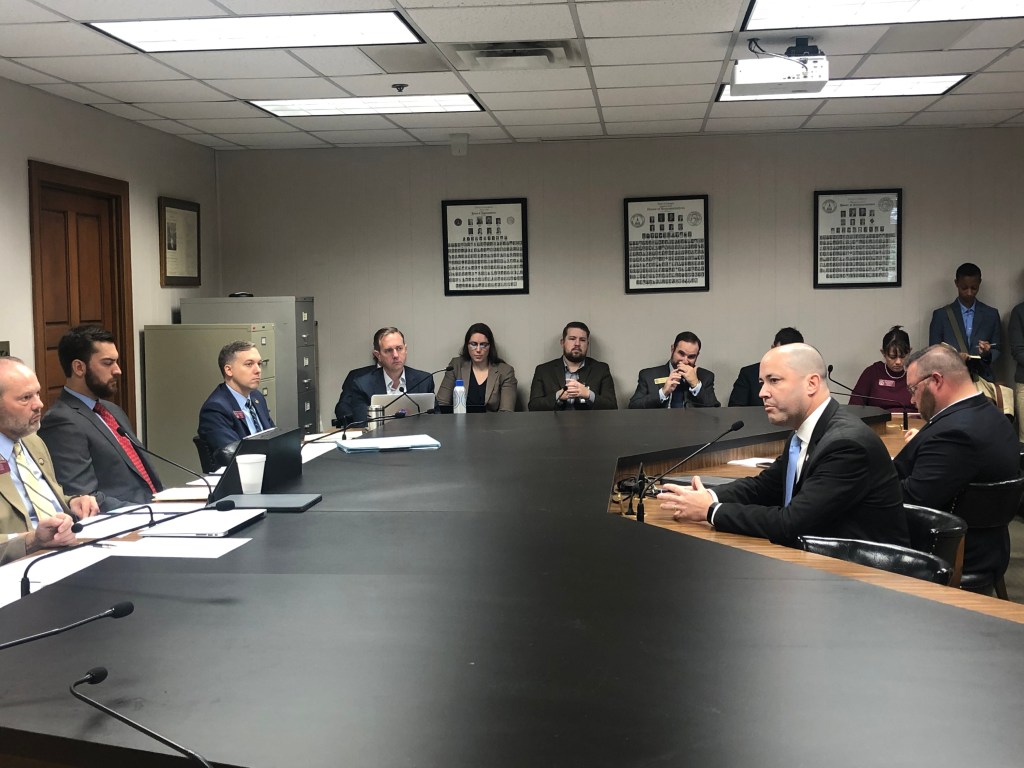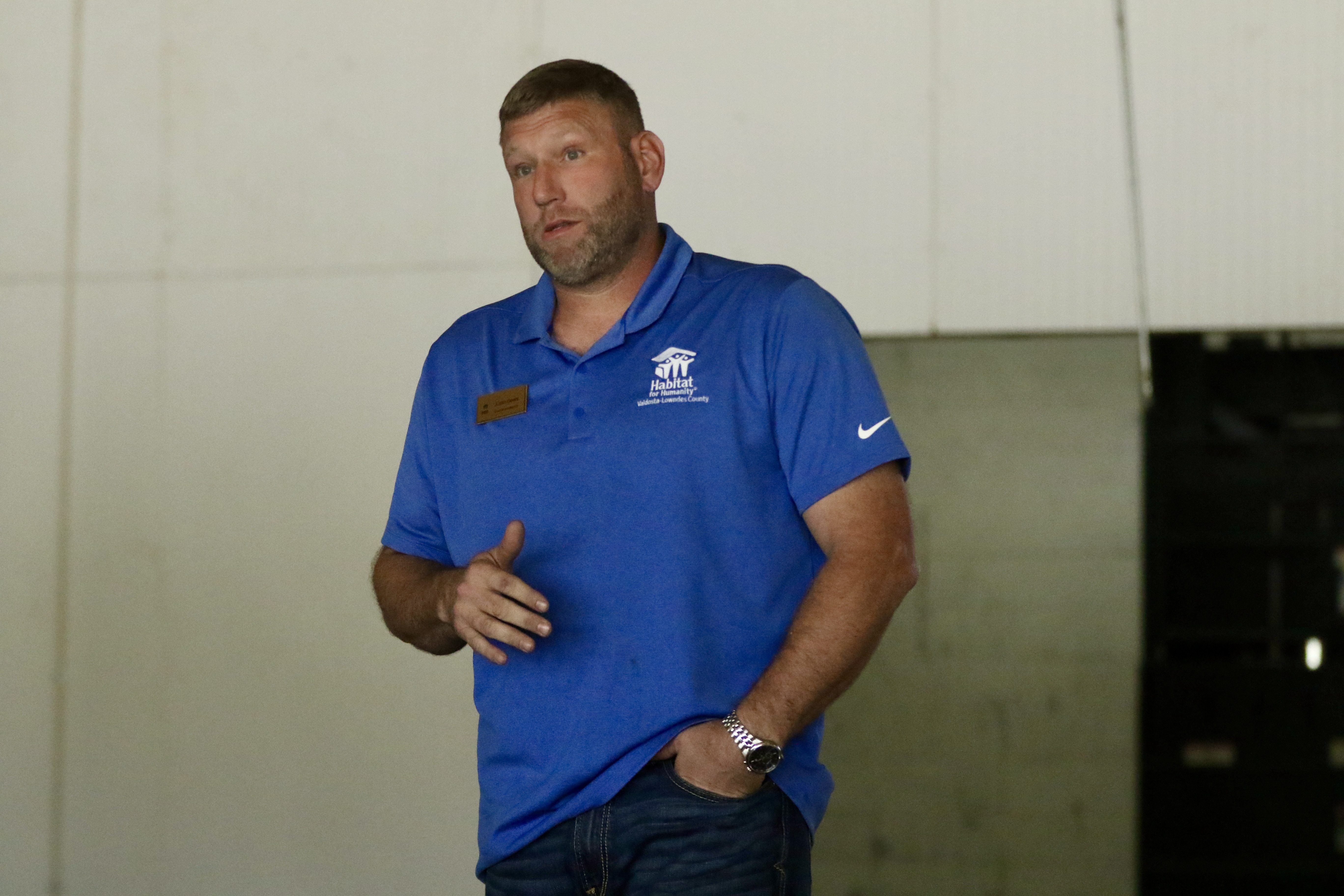Lawmakers poised to revive Hidden Predators Act
Published 9:45 am Wednesday, October 30, 2019

- Attorney General Chris Carr testified in front of a House study committee about the efforts his office is taking to investigate child abuse claims against the Roman Catholic Church in Georgia on Oct. 29 in Atlanta.
ATLANTA — Adult victims of child sexual abuse may soon be able to sue those who abused them when they were children — or the institutions that allowed it to happen.
A House study committee is considering reviving the Hidden Predators Act during the next session of the Georgia General Assembly, hoping to extend the statute of limitations for victims filing civil claims in court.
Rep. Heath Clark, R-Warner Robins, introduced House Bill 479 to extend the statute of limitations for victims to bring a lawsuit to age 38 from 23 or within two years of any age that a victim recalled past abuses through “delayed discovery” — previously repressed memories that resurfaced.
Lawmakers are also considering a year open window period for victims to file suits against institutions or organizations that may have known about the abuse but did nothing in response.
But some child protection experts argue that language in Clark’s bill benefits institutions that knew and hid alleged abusers while deterring victims from coming forward. An alliance of lawyers made the case that targeting entities, such as nonprofits, for past abuses may do more harm than good.
Federal lawmakers passed the Hidden Predator Act of 2015 which had a hand in exposing national gymnastics sexual abuse cases — including the case that led to the conviction of Dr. Larry Nassar, the former Michigan State University doctor.
Immediately following Nassar’s sentencing in those cases, former state Rep. Jason Spencer pushed Clark’s current bill but was met with opposition from the Boy Scouts of America and the Roman Catholic Archdiocese of Atlanta.
Spencer resigned his seat amid a scandal, abandoning the bill until Clark picked it up. State Rep. Teri Anulewicz, D-Smyrna also has similar legislation pending for next year’s session titled Child Victim Act of 2019 — showing bipartisan interest in the issue.
The 2015 legislation set the age limit to sue for past abuse to 23, but research shows that the average age of disclosure of childhood abuse is 52, Emma Hetherington, a University of Georgia School of Law assistant clinical professor and director of the school’s Wilbanks Child Endangerment and Sexual Exploitation Clinic, testified in front of the committee.
When the open window provision in the original act opened a period for victims to come forward and file lawsuits for past abuses, Georgia courts across the state saw fewer than 15 cases filed — far less than the “flood gate of litigation” that lawmakers feared, Hetherington said. The clinic took on six cases.
Most individuals who call the Wilbanks Child Endangerment and Sexual Exploitation Clinic, she said, are unable to get access to the civil justice system — either because they are too old and past the statute of limitations or too young to come to grips with the abuse.
“They’re not in a place in their life to go forward with a lawsuit,” Hetherington said, “and by the time they are our laws in Georgia are no longer opening courthouse doors to them.”
Statute of limitations laid out in other state’s legislations seem to be “arbitrary,” Hetherington said. Timelines vary widely from state to state.
But what is surely going to be the most debated section of the bill, Clark told the committee, is language surrounding bringing civil suits against “entities” that were suspected of being involved or having knowledge of the ongoing abuse and failed to report it.
The bill gives victims of any age a one year period to file suits of this nature. The bill requires victims to present “clear and convincing evidence,” meaning the actions were more likely to happen than not. The standard of evidence is among the highest in civil lawsuit practice.
Hetherington said this higher standard of evidence for lawsuits against institutions is unique to the Georgia legislation. The way the bill is currently written, she said, the court will see numerous appeals of rulings.
“When it comes to entity liability where you are really seeing that increase in burden of proof under the proposed bill, under our case law here in Georgia, you essentially have to prove gross negligence anyway…” Hetherington said. “I think if anything it might put more of a burden on filing. The way it is written is a little confusing, I would say, and it could discourage people from seeking any sort of assistance from the courts.”
Clark noted to the committee that the bill — which has gone through previous markups — needs to be improved in certain areas and that he is willing to work on the legislation and clear up the language.
Marlan Wilbanks, founder of the Wilbanks Child Endangerment and Sexual Exploitation Clinic and prominent Atlanta lawyer, testified separate from Hetherington, and reiterated the need for the window to file suits against entities.
If you want to change institutional behavior, Wilbanks said, you need to hit them “in the pocketbook.” Public schools, churches and nonprofits alike should not be protected from lawsuits when actively concealing child abuse, he said.
“I don’t think anybody should be immune from the knowing participation in child abuse,” Wilbanks said.
Emily Matson, a lawyer from Rome who represents small nonprofits, churches and other private entities, argued that the one year window is unfair to small nonprofits, which, if they had a lawsuit filed against them for actions of previous staff, could barely afford legal fees — whether parties come to a settlement or not.
“The one year door that has been contemplated in this bill is very, very concerning…” Matson said. “The problem is that in pursuit of protecting one child, two children or three children…you put the vision and the mission and the yearly operations of an entity at complete risk of going under.”
Matson argued that the legislature is blinded by big name child abuse cases against the Boy Scouts of American and the Roman Catholic Church. Small youth-related nonprofits have children to protect now, she said.
“That one year window for the private lawyers out there… that’s not going to help one child today,” Matson. “The lawsuits that are going to be filed under that window aren’t about a child today, they are about adults…It’s not just an entity that’s responsible. It’s the entity, it’s the employees and it’s the parents.”
Matson was not alone in voicing the concerns for nonprofits. Other lawyers and policy reform associations testified that sympathy for victims of sexual abuse may cause current nonprofits to bear the burden of guilt for past abuse.
Rep. David Dreyer, argued that parents put their trust in these nonprofits which have been built on the reputation of taking care of children and that legislators aren’t there to judge whether or not someone is guilty but try to ‘”create a framework to hold people accountable.” Lawmakers also reminded presenters multiple times that victims are responsible for providing evidence to support their claims — which is not always an easy task.
But should a local church whose old leadership may have known about abuse years ago be held liable when new leadership is unaware, and effectively be out out of business because of financial burdens of a lawsuits, advocates asked.
If a church allowed that abuse to happen, Wilbanks, founder of UGA’s child endangerment clinic, said, it probably happened more than once.
“The church not doing what it was supposed to do…think of the lives that were harmed,” he said. “In our society you’re a hypocrite if you preach morality and you preach Jesus and you preach loving His children and you intentionally don’t do it — there has to be a consequence for that.”
Rev. Mike Griffin, representative from the Georgia Baptist Mission Board — a frequent face in front of lawmakers — said that the church has supported the Hidden Predators Acts over the past few years and this legislation is no different.
“We want to make sure that the perpetrators are held responsible, we want to make sure that the people are responsible are held responsible and we want to make sure that the entities are held responsible,” Griffin said.
But the church also recognizes the need for the high standard of evidence as a matter of due process, he said.
Attorney General Chris Carr made a surprise appearance and testified in front of the committee about efforts his office is taking in investigating records and claims of child abuse against the Roman Catholic Church in Georgia after allegations of abuse rippled throughout the country.
The investigation was launched in April and is spearheaded by the the state’s Prosecuting Attorneys’ Council. Carr is not sure when the investigation will be concluded and findings released to the public. Church leadership in Atlanta and Savannah have both been cooperative throughout the efforts, he said.
“It’s in the best interest of everybody,” Carr said.
A representative of the Roman Catholic Dioceses in Georgia outlined their policies addressing child and sexual abuse in the church — recognizing that there have been “isolated instances of abuse in the Catholic Dioceses in Georgia over the past six decades.”
But both Dioceses, he said, assert that there are no acting priests in Georgia today who have had credible allegations of child abuse against them.
The Roman Catholic Church declined to take a position on HB479 but listed similar concerns regarding the open window provision for suing entities.





